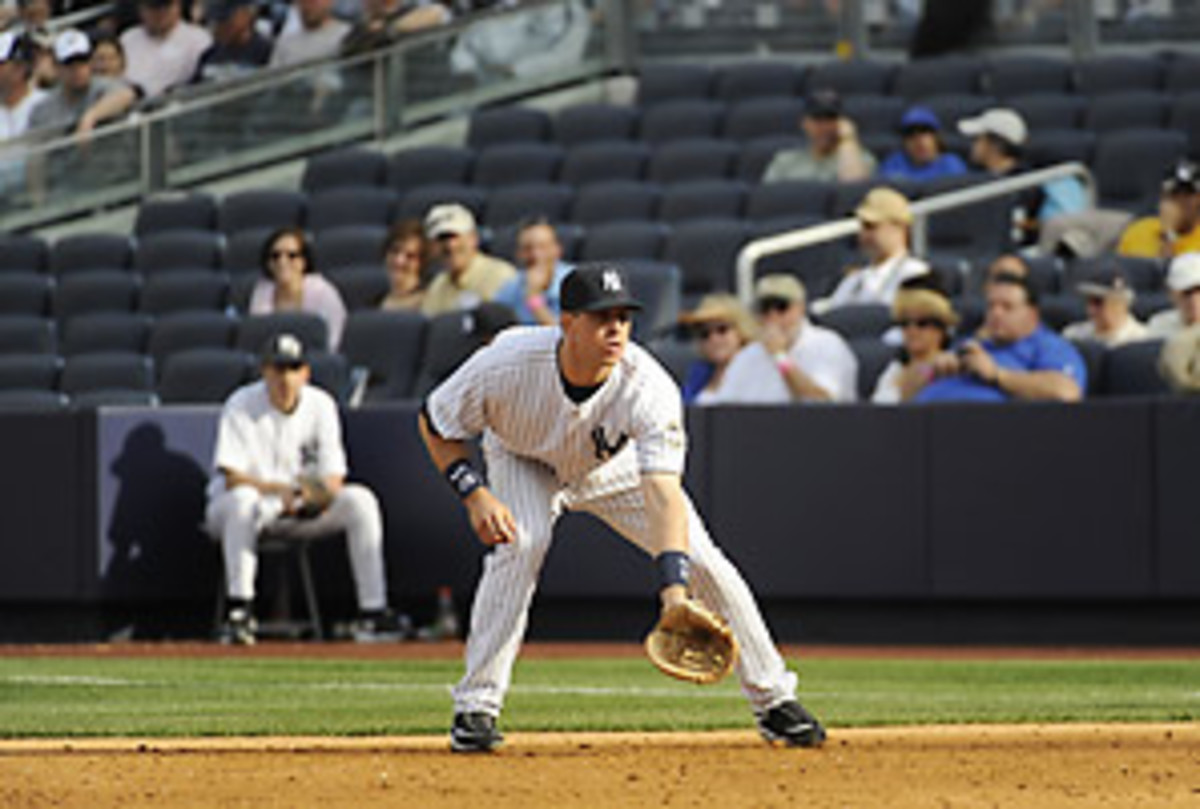Ticket price fiasco further proves Yanks' overconfidence in product
Hubris, the Greeks taught us, can be fatal. It's a lesson the Yankees have either never learned or chosen to ignore. Perhaps it's finally sinking in now that they've had to slash prices on the ridiculously costly seats in their new billion-dollar baseball palace. The impact the move will have on their bottom line and future operating strategy remains to be seen, but one thing's clear: The team's management philosophy -- win at all costs -- has resulted in an unsustainable business model, and it's hindering, not helping, its efforts to achieve its single, stated objective -- win the World Series.
First, the Yankees overpaid for talent that has not been good enough to end their championship drought (the current eight-season title drought is already the fourth-longest stretch in franchise history). Then, they drastically overestimated the demand for their most expensive tickets, which inhibits their ability to afford that talent by denying them a lucrative revenue source. The fact that all of this has come in the midst of a serious economic recession further illustrates the Yankees' supreme over-confidence in their methods and their product. For instance, while other teams were exercising admirable restraint last winter in the face of a crumbling economy, the Yankees were plowing ahead like a pinstriped panzer, spending nearly half a billion dollars on three players -- one year after lavishing $300 million on a single player -- and maintaining easily the most expensive roster in the game. Those investments are not exactly paying big dividends right now, either. The Yankees are 10-10 and third in the AL East. Alex Rodriguez's injury has prevented him from playing a single game this season and his personal drama is a constant distraction; Mark Teixeira is batting .206; A.J. Burnett and CC Sabathia have a combined 3-2 record and a 5.02 ERA.
There may not yet be a limit to how much the Yankees will pay to put a quality team on the field, but they have found (and, most would say, wildly exceeded) the limit to how much others will pay to watch that product. Prices at the new Stadium were set based on the assumption that the Yankees' blinding star power, iconic image and fancy new digs would be more than enough to woo substantial high-end bidders to plunk their substantial wallets down in the cushioned seats with teak arms. According to the brochure for their Legends Suite (the most expensive seats), full-season ticket packages for the 25 sections closest to the field ranged from $2,500 per ticket per game for the front row seats behind the dugouts and home plate to $500 for tickets down the outfield foul lines. (There were also per-game plans for $1,250, $1,000, $850, $600 and $500.) In all, the Yankees were offering almost 1,900 seats for $500 or more. Jon Greenberg, executive editor of Team Marketing Report, a sports business research company that analyzes team ticket prices and marketing plans, said only one other team offers any seat over $500 (the Dodgers, who offer 165 dugout VIP seats that go for $524).
On Tuesday, the Yankees announced they'd slashed the prices in half for 48 of those front-row seats to $1,250 and reduced the cost for 68 front row seats down the line from $1,000 to $650.
Greenberg said setting prices so high in the first place was "a huge, huge reach. How did they come up with these prices? It just didn't make sense. It's like they pulled them out of thin air."
These cutbacks will surely cause the Yankees to majorly rethink their financial plans. As recently as January, reported The New York Times, the Yankees estimated they would earn $331.5 million from ticket and suite revenue this season if they drew three million fans. Given that the Yankees, who have led the majors in attendance for six straight seasons, have topped four million fans each of the past four years and were moving into the most highly-anticipated new structure in the history of sports, it seemed like an easily attainable benchmark.
It's unclear how that anticipated revenue total will change if the unsold seats are the most expensive ones. After all, no team wants its priciest offerings to remain unsold. Yet even after reducing the costs of their most expensive seats, the Yankees' ticket prices still dwarf those of every other team in the game. Greenberg predicts this isn't the last time prices will fall. "Next year they're going to have to cut even more," he said. (Attempts to reach someone in the Yankees premium sales office were unsuccessful.)
Scaling back the costs of those tickets may reduce revenue, but it should bring in more fans who had previously been priced out of the new ballpark. The sight of hundreds, if not thousands, of empty premium seats was as embarrassing to the franchise as the team's uneven play has been in this young season. It sapped the Stadium of much of the vaunted intensity and intimidation that had always made for a sizable home field advantage at its namesake. After playing the first game at the new Stadium on April 16, Mark DeRosa of the Indians said "I looked up in the seventh inning and a lot of [fans] were leaving. In the old Stadium you never saw that."
Indeed, fans at Yankee Stadium have always made their presence known, whether through thunderous applause, rhythmic chanting or the occasional bit of creative language. The catch, of course, was that they had to be seen to be heard. Amid a sea of empty blue seats in a ballpark they had paid for in tax dollars, the fans were heard loudest by not being seen at all.






